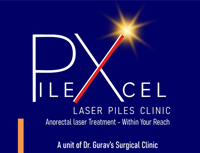Irritable Bowel Syndrome (IBS) is a common functional gastrointestinal disorder characterized by a cluster of symptoms related to bowel habits and abdominal discomfort. IBS is a chronic condition that varies in severity and can significantly impact an individual's quality of life.
The exact cause of IBS is not well understood. Factors that may contribute include:
Conclusion: Obstructed Defecation Syndrome is a complex condition that requires a comprehensive approach to diagnosis and management. Treatment strategies are tailored to individual cases, addressing both functional and structural aspects. Individuals experiencing symptoms should seek evaluation by a healthcare professional for proper diagnosis and personalized treatment planning.
Conclusion:Irritable Bowel Syndrome is a chronic and multifactorial condition that requires a comprehensive and individualized approach to management. A healthcare professional can guide patients in implementing lifestyle modifications, dietary changes, and appropriate medications to improve symptoms and enhance overall well-being.

Pilexcel Clinic is multicentre clinic dedicated to Anorectal problems and treatment of anorectal problems with advanced Laser technology. I have seen that patients many times struggle finding right solutions for their anorectal problems. Our mission is to provide patients with expert & qualified guidance, advanced laser treatments and individualised treatm options. We aim to give you advanced treatment options at centers near you, by experts and at affordable costs.
Eat foods rich in fibres and avoid junk food & spicy food
Do a regular physical activity as per your convenience.
Have an adequate water and liquid intakes daily.
Most of the periananl problems can be attributed to increased straining, avoid it.
Its necessary to get checked and correctly diagnosed by a qualified doctor.
Problems can be treated as per medical advice.
Get knowledge of laser treatments from doctor.
Dr. Gurav's Specialty Clinic | Devleoped By Sanmisha Technologies